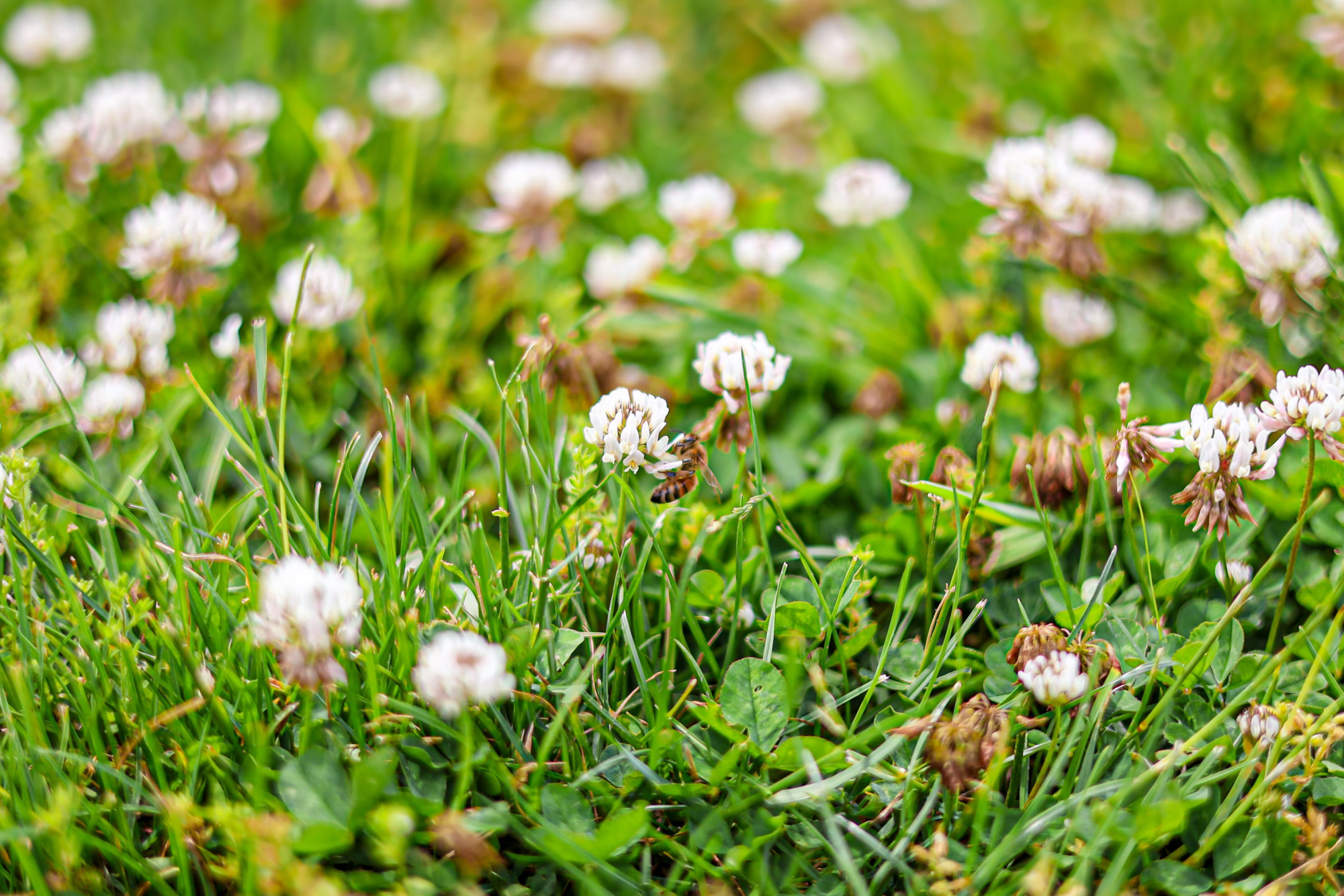Pitt Sustainability celebrates Pollinator Month


A bee interacts with a flower.
Pollination season is at its peak, and bees and other animals are ensuring plants can thrive this summer.
“It’s a time for all, not just here at Pitt, but worldwide, to really acknowledge and appreciate all the work that pollinators do,” Greg Null, co-chair of the Pollinator Habitat Advisory Committee at Pitt, said.
Pitt Sustainability celebrated Pollinator Month this June to raise awareness for the bees, butterflies and other animals that are essential to the reproductive process for many plants. The University has held numerous events on campus to highlight the importance of this natural process.
“Pollinator Month is meant to be an opportunity to highlight and focus on how important pollinators are to our ecosystem, our food system and the ecological health of our planet,” Emily Potczny, the engagement manager for the Office of Sustainability, said. “The events that we’ve had throughout the month are meant to be a celebration of all of the ecological services that pollinators provide and how we can support them in a healthy ecosystem.”
Pollination, the fertilization process of most wild plants, is a vital part of the Earth’s food systems and ecosystem, and animals such as insects, reptiles and mammals are the key to this process, according to Null.
“Pollinators are animals, oftentimes insects, that move from bloom to bloom, drawn in by nectar,” Null said. “As they land, they tend to take the pollen up and then distribute it to other flowers. That’s how many plants with blooms reproduce.”
Throughout the month, students participated in a series of “lunch and learns” hosted by members of the Advisory Committee, as well as interactive activities such as butterfly puddler making and tours of Pitt’s pollinator gardens. The Office of Sustainability also hosted a pollinator plant giveaway in front of the William Pitt Union.
It’s especially important to raise awareness for pollinators, especially pollinator insects, because their populations are in decline, according to Vikas Khanna, an assistant professor of civil and environmental engineering at Pitt.
“The decline of insect pollinators is a multi-faceted problem,” Khanna said. “At a broader level, there are several factors that have an impact on the health of pollinators and ultimately their population. These factors tend to be: loss of habitat, poor [nutrition], climate change, pests, parasites, pesticide use, as well as land management practices.”
Null emphasized the negative impact that pesticides have on pollinator insects.
“When you spray for any insect, let’s say you don’t want aphids … That’s not just going to kill the aphids. That’s going to kill any bee that lands on that plant or flies through the dust,” Null said. “That puts at risk the ability of pollinators to get out there and do things like make sure we have apples this fall or to make sure that we have zucchini.”
Pollinator Month is meant to raise awareness of these issues and make sure that Pitt and its students can make themselves more pollinator-friendly, according to Potczny.
“There are some simple things you can do around the materials that you choose not to use, like heavy pesticides and fertilizers,” Potczny said. “If you have lawn, [you can identify] some spaces where you can minimize that lawn and plant some native pollinator-friendly plants like butterfly weeds. You can also do things like raise the height of your mower a few inches, so that things like clover and dandelion, which are some of the earliest food for pollinators once they come out of hibernation … thrive and bloom on your lawn.”
At an institutional level, the University takes pollinator habitats into consideration when tending to green spaces, according to Null.
“Being that we’re an urban campus, there’s an emphasis on the green space that we do have,” Null said. “One of the committee’s roles is to advise grounds in the University on how we can [create] ways for pollinators to live right here in the middle of Oakland. We do some of that through the Bee Campus Accreditation, which states that we’re a college campus that puts an emphasis on awareness and habitat for pollinators. We also do things like working with grounds to ensure that we’re using organic methods and trying to get as many plants in as possible that are friendly to pollinators.”
Beyond the tangible things people can do to help pollinators, Potczny added that being educated is equally important.
“Just being aware of how important the pollinators actually are to our food systems and our ecological systems [is important],” Potczny said. “One out of every three bites of food only exists because of pollinators … things like that demonstrate that there is really a need at an institutional level to make sure that the spaces that are responsible for more land can adopt some of these pollinator-friendly policies.”
Recent Posts
Pitt researchers making plans for future research amid proposed NIH funding cuts
Two months have passed since the Trump administration froze and proposed major cuts to NIH…
Do You Not Get the Concept? // Your favorite rapper’s favorite rapper
In this sixth edition of “Do You Not Get the Concept?” Maya Douge explores the…
A Good Hill to Die On // Summer … not so fast
In this edition of “A Good Hill to Die On,” I dive deep into whether…
Couch Critic // ‘Anora’: A glitzy Oscar sweep, but does it offer anything new?
This week, Emily Harris breaks down Best Picture winner “Anora,” and explores how its familiar…
City Couture // Balancing college life
In this edition of City Couture, staff writer Marisa Funari talks about how to effectively…
Who Asked? // Is it better not to know?
This installment of Who Asked? by staff writer Brynn Murawski confronts our insatiable desire to…

